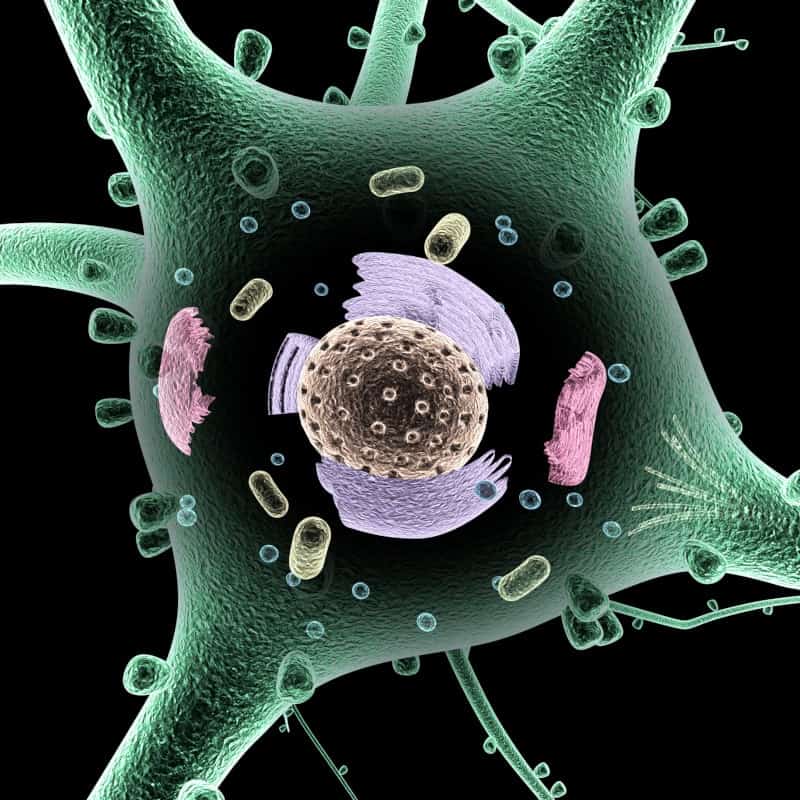Overflowing cellular waste dumps: responsible for Parkinson’s disease?
Lysosomes are the waste and recycling dumps of the cell and responsible for the degradation of intra- and extracellular molecules. Dysfunction of any component within the degradative system will lead to cellular congestion. Accumulating evidence indicates a link between inefficient substrate degradation and neurodegenerative disorders, like Parkinson’s disease.
By Friederike Zunke
Every cell of our body produces waste, which needs to be cleared in order to preserve cell function. Cellular waste comprises, for example, intracellular proteins, lipids, carbohydrates and nucleic acids as well as molecules and pathogens from the outside of the cell. The scientific name for our cellular garbage disposal, which is responsible for the degradation and recycling processes, is ‘lysosome’.
Specialized proteins within the membrane as well as in the lumen of lysosomes are important for efficient degradation. If any component of the cellular garbage disposal machinery does not work sufficiently, it creates a cellular congestion and thereby leads to a variety of different diseases. These diseases include the rare group of lysosomal storage diseases as well as neurodegenerative disorders, including Parkinson’s disease. A major characteristic of Parkinson’s disease are movement disabilities, but also non-motor impairments including sleep disorders and gastrointestinal problems.

Surprisingly, only ~10 % of Parkinson’s disease cases show a clear inheritable, genetic link, whereas the majority of cases are of unknown cause. Recent genetic screenings of Parkinson’s patients identified a high number of lysosome-associated genes as potential risk factors for Parkinson’s disease. Interestingly, molecular as well as clinical data indicates that lysosomal dysfunction can cause neurodegeneration. One reason for this might be the vulnerability of our neuronal brain cells, since they do not undergo further cell division. Therefore non-degraded substrates (cellular waste) slowly accumulate in aging cells over time. This increasing pile of cellular waste is then responsible for toxic effects within the brain.
A recent review published in Neuroforum, summarizes and discusses the latest studies about the impact of lysosomal function in Parkinson’s disease. Moreover, it is outlined how targeting lysosomes might be a novel treatment strategy in Parkinson’s disease, since to date there is no curative therapy available for patients suffering from this devastating and progressive disorder.
Read the original article here:
Friederike Zunke: The function of lysosomes and their role in Parkinson’s disease, 09.01.2020.